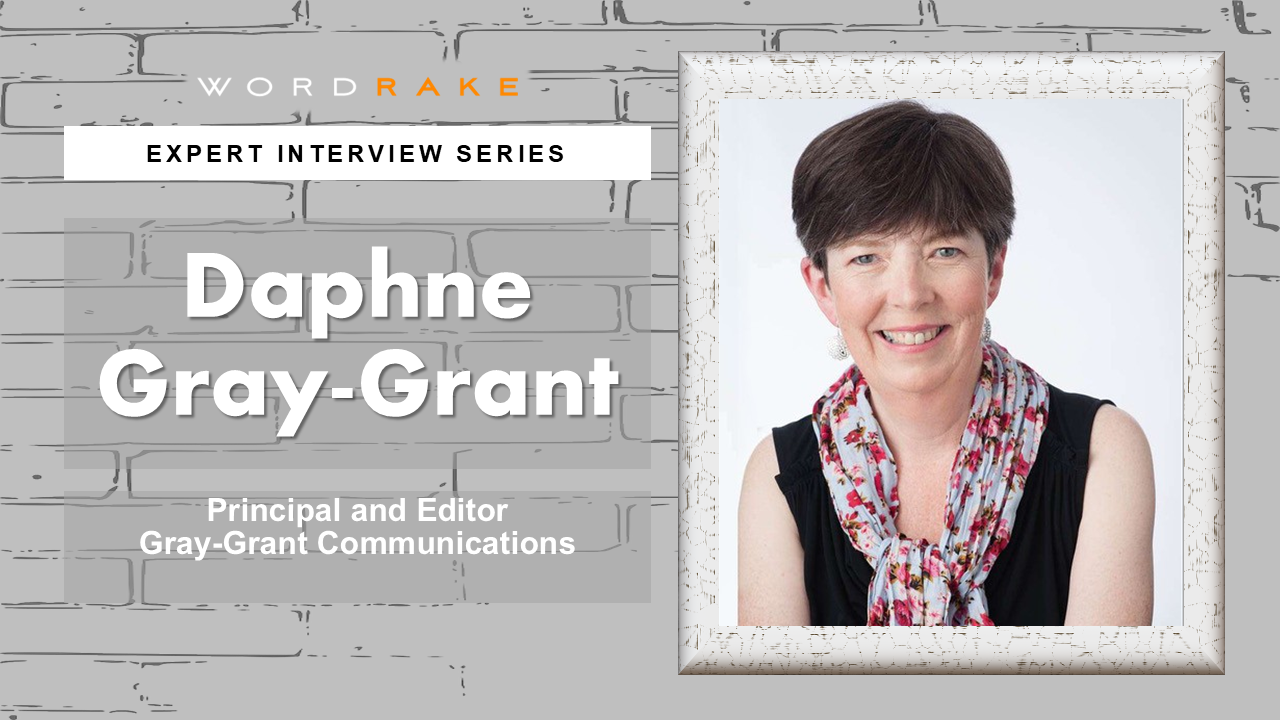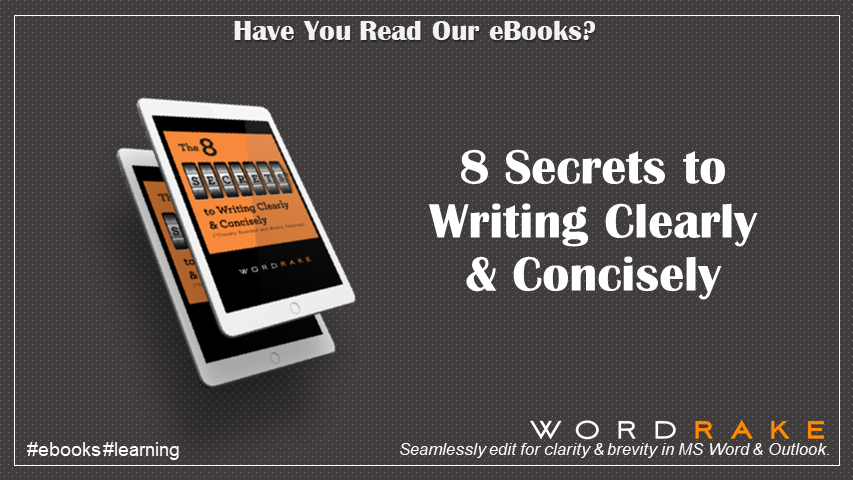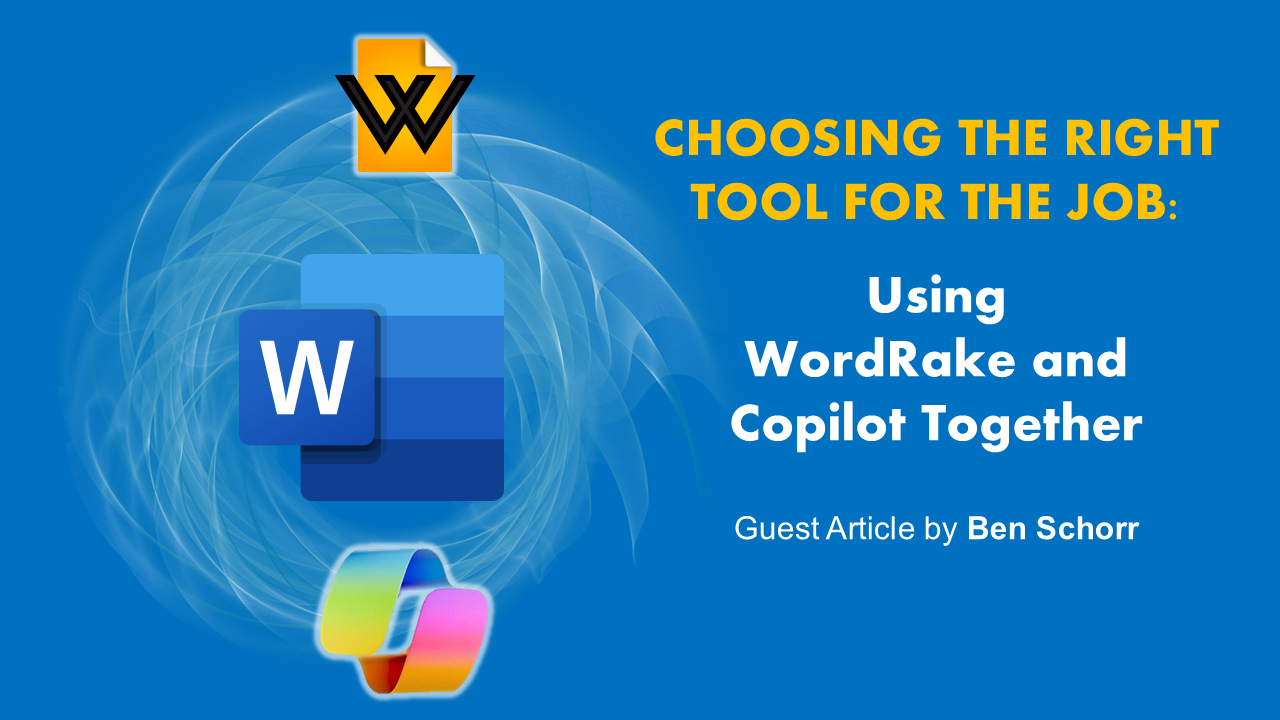Daphne Gray-Grant has words in her blood. Born to a newspaper family, she started editing in school and never stopped. She took the time to share her experience with us and shine a light on why even the best need editors, and how the field is evolving with new technologies.
What prompted your interest in editing?
I was a “born” editor. I started doing it in high school and continued in university, primarily for my own essays. But when friends discovered I was pretty good at the job, they asked me to help them with their writing, too. And I did, because I thought it was fun! I think I gravitated to editing because I’d been a high school debater and “making sense” and being persuasive were attributes that came naturally to me. My parents owned a struggling weekly newspaper and I started working there in high school (doing admin) but once I entered university, I officially began editing part-time. I started working there full-time after graduation and then moved to a large metropolitan daily paper when I was in my late 20s, where I became Books Editor and then Features Editor.
What is your role and how are you involved in editing?
I have never been a good copy editor! People sometimes say they’re embarrassed to email me because of grammar or spelling mistakes, even typos, and I never see them! I just don’t have the DNA for copy editing. My skill is substantive editing, and my newspaper experience — where I worked for 10 years —helped make me really fast at it. After I left newspapers, I briefly became a freelance book editor (which I hated! I ended up having to work way too many holidays and weekends because print deadlines are always immovable and writers are almost always late). And after that, I migrated towards corporate writing and editing. Now I coach others in the business of writing and editing through my website, The Publication Coach.
Who are some of your favorite writers? What about their work stands out to you?
I’ve always been a big reader. I commit to reading at least 52 books a year and I often better that goal. My preferred genres are memoir and literary fiction. Some of my preferred authors are:
Fiction
Maggie Farrell: Her writing is lyrical and her plots are gripping. My favourite, by far, is Hamnet, a lovely piece of historical fiction based loosely on the life of William Shakespeare and his wife.
Tanya French: I don’t read much mystery because I find it too predictable but French is a sophisticated writer with a great eye and ear for figurative language. I especially enjoyed The Likeness.
John Green: I’m not a typical reader of young adult fiction but his book, The Fault in Our Stars, is on my lifetime top 10. It’s exquisitely written and contains a depth of feeling not normally found in literature, never mind literature aimed at children.
Non-Fiction
Patrick Radden Keefe: A truly remarkable writer, Keefe is also a first-rate investigative reporter. I’ve enjoyed everything he’s every written (including his pieces for the New Yorker) but his book, Say Nothing, the story of the “Troubles” in Northern Ireland, blends detailed reporting with a plot that sounds as though it’s come from a thriller. It’s unputdownable.
Atul Gawande: This guy’s CV should make anyone feel inept. An American surgeon, professor, consultant to the W.H.O. and a staff writer for the New Yorker, Gawande also writes books in his hard-to-imagine “spare” time. His best book is Being Mortal, which examines end of life issues with great sensitivity and enormous reserves of honesty.
Maggie Smith: Not the actress! The poet. Her memoir, You Could Make This Place Beautiful, is an open-hearted book about her tragic divorce that is written like (highly accessible) poetry. Smith achieved fame when one of her poems went viral, causing her writer-husband to have an affair. (True story!)
If someone is already a good writer, why would they need an editor?
Everyone needs an editor. When we write we become too close to our own work and we always benefit from the “outside” perspective of a fresh pair of eyes. Think about it: You’ve done the research, the thinking, the planning AND the writing. At this point, you are too far removed from your readers (who don’t know as much as you do on your subject), to truly understand the questions they are going to have about your writing. A good editor can help you with that.
Are editors able to edit their own writing?
See previous question. Even editors require editors. I have written two books, 8½ Steps to Writing Faster, Better, and Your Happy First Draft, and I hired a professional editor for both of them. I also pay for a professional editor for my weekly newsletter because I don’t want it to go out with mistakes or gaps. (Glass houses and all that.)
How does AI change things for professional editors? Is there still value in hiring a human?
Society hasn’t realized it yet, but I think AI is going to reduce the number of editors in the world. AI is a much better editor than it is a writer. (The engine known as Claude, in particular, is very, very good if you give him the right prompts.) That said, there is still huge value in human editors and AI will never be able to match that. But I always recommend that writers run their work through AI first and then go to a human editor. AI can save you a lot of time.
What tech tools do you use in your work?
I use AI for editing (Claude) and brainstorming (Perplexity or ChatGPT). My favourite tool, and it’s really inexpensive is Text Expander. It allows me to create “codes” for any text I use frequently. I often need to email people advice or instructions, and I have them all prewritten in Text Expander. I use it multiple times a day and it saves me so much time! I have a long email address, so I type in the code “myemail” and the software automatically populates it with: daphne@publicationcoach.com
Are there any writing “rules” you wish the industry would forget about?
Honestly, if one more person tells me not to begin a sentence with And or But, I’m going to lose it. In fact, this is not a rule. It’s a misunderstanding that’s been perpetrated by high school English teachers. (Anyone who doubts this should read the work of Constance Hale, author of Sin and Syntax: How to Craft Wickedly Effective Prose.)
When is it okay to break a grammar rule?
My rule is: you need to know the rule and have a reason for breaking it. For example, you may occasionally wish to break the rule about all sentences needing verbs, to sound more intense or emphatic or hurried.
How do you build a freelance editing business?
This is a hard question, especially today in the age of AI. For people who already have fulltime work, under no circumstances should they quit their job to start freelancing. Instead, I suggest looking for freelance work they can do during evenings or weekends. That way they can start to build up a clientele without putting their financial future at stake. It may be stressful to work that hard, but not nearly as stressful as not having enough money for food or rent.
I have always found corporate writing/editing to be higher paying and easier to get work in than “editorial” writing/editing (eg: magazines or blogs) so I’d suggest starting with businesses. Most will have a communications or public affairs department and writers/editors should always start there. Helping out during Annual Report season (most are published in March or April) is a smart idea because companies often need extra help then.
When I launched my freelance business, I always aimed to have one or two “anchor” clients who paid me enough that — even if I got no other work that month — I had enough of an income to survive on. Once you have an anchor client you can set up shop as a freelancer. My best anchor client was a forestry company that hired me to edit a monthly employee publication. It was 2.5 days/week and the pay was excellent.
About Daphne Gray-Grant
Daphne Gray-Grant grew up in the newspaper business: her parents owned a struggling weekly where she worked from the age of 16, even while completing an honours degree in political science at the University of B.C. Eventually, she left the family business to become a senior editor at a major metropolitan daily — The Vancouver Sun — where she worked for 10 years.
After the birth of her triplet children in 1994, she became a communications consultant, and writing and editing coach. She is author of 8½ Steps to Writing Fasgter, Better and Your Happy First Draft. She has been blogging since 2006, and hosting a YouTube channel since 2017. She strongly believes that main reason many people can’t write — and can’t write quickly — is because the school system hasn’t given them the simple tools to do it. Her popular and FREE weekly newsletter, Power Writing, goes to thousands of readers/writers/editor around the world every Tuesday. To subscribe, go here.
About the Editor Interview Series
WordRake is an automated editing add-in for Microsoft Word and Outlook. Our editing algorithms are created by linguists and subject matter experts to offer nuanced suggestions to improve clarity and cut wordiness in your documents. But we know that software is only the start of your editing process! To help writers understand more about editing and the considerations that go into it, we’ve enlisted several of our favorite professional editors to share their experience and wisdom. Learn from the best about the importance of great editing—and then go try WordRake for yourself!









